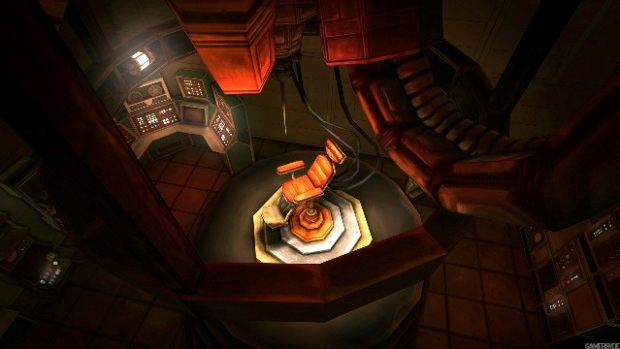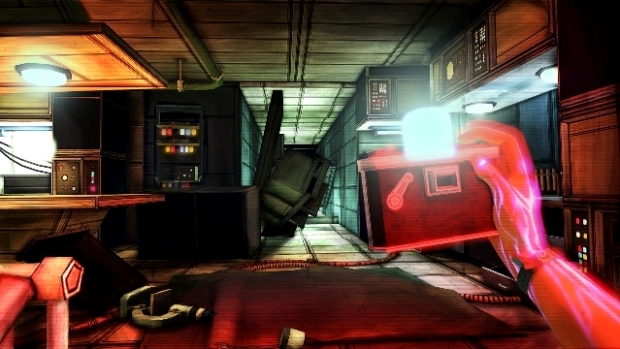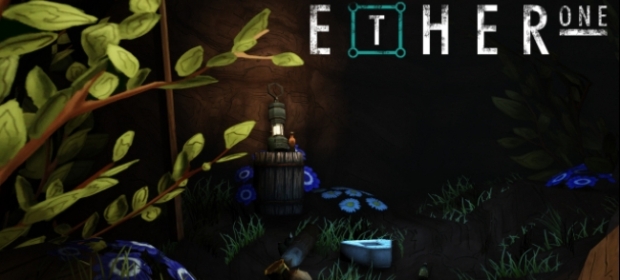The mind is a fragile thing, and one that we universally take for granted. So much information – trivial or worthwhile – is stored in our heads and we expect it to stay there for eternity like an at-hand encyclopedia. However, humans are susceptible to a number of things that eat away at our brains and leave us “umming” and “ahhing” like choir singers.
The first person adventure-cum-exploration game, Ether One, brings this to light with a story that revolves around you – the Restorer. It is your job to physically enter and explore the memories of a young woman, so as to piece together moments that have been lost due to dementia. In order to fight the disease that’s rotting the subject’s mental faculties, you must collect a variety of memory fragments (in the form of ribbons) and solve puzzles of varying difficulty, all within the quaint English village of Pinwheel.

There are a number of topics at the core of Ether One’s plot that rarely see the light of day in video games, with the heartbreaking dementia just one, albeit the most prevalent. By sticking to the main questline, you miss out on so much history of this industrial town that was inhabited by some wonderful, inventive minds. From the off, exploration is encouraged and there’s no doubt that reading newspaper clippings, journal entries and notice boards gives you a better feeling of what the residents of Pinwheel were truly like. The overarching story will never push you to wander into every unlocked door, but it’s a joy to gradually discover the type of lives led by the Pinwheel locals .
Ambling around the world has its positives and its negatives, though. Ether One gives you all of the tools to race through the picturesque setting as quickly as you wish, or to open every drawer, door or locker that’s presented. But, that agency often leads to confusion and a sense of frustration when things aren’t made quite as clear as one would want, when it comes to the puzzles. You can spend hours upon hours staring at a brainteaser, banging your head off the wall wondering why the solution eludes you, only to figure out that the pivotal item needed for the answer is contained in one of the other levels (of which there are four). The majority of these are side quests that aren’t triggered by anything other than your own curiosity, so your progress won’t necessarily be impeded, but Ether One’s cryptic nature can be to its detriment, at times. Pen and paper are a must.

With this revelation that items scattered throughout must be used at different intervals, it may come as surprise that you have no inventory – in the traditional sense, at least. With the tap of a button, you can teleport between Pinwheel and an area called The Case. The Case acts as a storage space for all the little trinkets you can pick up in the world. You can only hold one item at a time, so teleporting between memory and reality is a regular occurrence. And due to the fact that some items don’t become important until a later stage, there’s a large probability that you’ll be hoarding everything in your safe haven. While transporting to and fro is easy, finding your bearings in an environment isn’t. It’s quite easy to lose track of where a side quest is, or where you interacted with something that wasn’t useful then, but is now. Even with the exploration ethos, the lack of a map is a glaring omission.
Memory fragments must be collected in order to delve deeper into the mind of the patient, and these appear as whispering, red ribbons. By collecting all in a given area, you unlock a Core Memory, which uncovers more information on the patient’s history. As the name would suggest, these Core Memories are what push you through the main story and reveal more about what exactly is going on in Ether One. It definitely takes some twists and turns along the way and will keep you engaged, for the most part.

One of the most engrossing aspects of strolling around Ether One is how beautiful the world is. With an excellent use of a simplistic style, every area has an abundance of character. Like a canvas painting, the dingy mines and glistening harbour appear as if they’ve been crafted by an artist and their brush. Music is used in a similar fashion as its delivery is subtle and calming, appearing only when necessary.
VERDICT: In many ways, seeing a developer give the player such a large degree of responsibility is forward thinking. It’s certainly rare, these days. Unearthing the story at your own pace is wonderful. However, Ether One goes too far in that direction and puzzles become tedious exercises in trying combinations of different items you acquired in a completely different area. There is no shortage of interesting ideas present, but it’s hard to look at Ether One and not think it could have been more.

GOOD. A game that scores 7/10 is worthy of note, but unworthy of fanfare. It does many things well, but only a few of them incredibly well and, despite a handful of good qualities, fresh ideas and solid mechanics, it fails to overwhelm.
Review code provided by publisher.





